How to Identify the Best Neighborhoods in Jupiter for Rental Properties
When investing in rental properties, selecting the right neighborhood is one of the most crucial decisions you’ll make. The ideal neighborhood will not only offer a high potential for rental income but also ensure long-term stability and a strong return on investment (ROI). Jupiter, Florida, with its scenic views, luxury living options, and prime location, is an attractive market for real estate investors. In this comprehensive guide, we will delve into how to identify the best neighborhoods in Jupiter for rental properties, with clear steps, actionable advice, and insights to help you make an informed decision.
1. Understanding the Rental Market in Jupiter
The Current State of the Market
Jupiter is known for its family-friendly atmosphere, excellent schools, and proximity to pristine beaches and cultural attractions. However, understanding the dynamics of the rental market is critical before making an investment. For example, seasonal rentals are quite popular due to Jupiter’s influx of tourists and snowbirds in the winter months. On the other hand, long-term rentals are driven by the local population, which includes professionals, families, and retirees.
The key to finding a profitable rental property in Jupiter is balancing seasonal and long-term rental demand. By examining rental trends, you’ll be better positioned to determine which type of property will provide the best return on investment.
Rental Price Trends and Demand
Before diving into any specific neighborhoods, it’s essential to understand the rental price trends in Jupiter. Historically, the median rental price in Jupiter has experienced steady growth, with properties near the coast commanding premium rental rates. However, areas further inland may offer more affordable options with higher rental yields, especially for long-term tenants.
By tracking local rental listings, talking to property managers, and consulting with real estate agents specializing in Jupiter properties, you can identify areas with strong rental demand. This will help you determine whether it’s best to invest in high-end coastal properties or more affordable inland options.
2. Key Factors for Identifying Prime Rental Neighborhoods
Proximity to Key Amenities and Attractions
Jupiter’s appeal lies not just in its stunning beaches but also in its proximity to amenities such as shopping centers, restaurants, parks, and entertainment options. When assessing potential neighborhoods for rental properties, consider how close they are to key attractions.
Beaches and Waterfront Areas: Neighborhoods near the beach typically attract higher rents, especially during peak tourist seasons. Consider areas like Jupiter Island or the neighborhoods around the Jupiter Inlet for high-end rentals with coastal views.
Shopping and Dining: Areas near local shopping centers like the Harbourside Place, or those with easy access to dining and entertainment options, can also drive demand for rental properties.
Proximity to Major Employers: Jupiter’s economy is supported by various industries, including healthcare, finance, and technology. Identifying neighborhoods close to major employers or business hubs can ensure a steady stream of tenants.
School Districts and Family-Friendly Areas
Jupiter is home to some of the best-rated schools in Palm Beach County, making it an attractive area for families. Neighborhoods within well-regarded school districts tend to have higher rental demand, as parents often prioritize proximity to good schools when selecting a rental home. Look for homes in areas like the Abacoa community, where the public schools are highly ranked and attract families.
Furthermore, family-friendly neighborhoods that offer parks, playgrounds, and safe, walkable streets are in high demand, especially for long-term rentals. These areas can provide stable rental income, as families are likely to stay in one place for longer periods, reducing tenant turnover and vacancy rates.
Safety and Crime Rates
One of the most significant factors for tenants when choosing a rental property is safety. A low crime rate can directly influence the desirability of a neighborhood. To gauge safety, consult local crime statistics, talk to residents, and consider visiting the area at different times of the day.
Neighborhoods with good reputations for safety typically experience higher demand, as tenants are more likely to choose an area where they feel comfortable living. For instance, neighborhoods like Paseos and Jupiter Farms have established themselves as safe, family-friendly areas that are attractive to potential renters.
3. Evaluating Property Types for Rental Investment
Single-Family Homes vs. Multi-Family Units
When selecting a neighborhood in Jupiter for rental properties, it’s essential to consider the type of property you plan to invest in. Single-family homes and multi-family units each come with their own advantages and disadvantages.
Single-Family Homes: These properties are generally more stable investments, offering long-term rental income and attracting families or individuals who want privacy. They may require higher upfront investment costs but often appreciate in value more consistently over time.
Multi-Family Units: Duplexes, triplexes, and larger apartment buildings can provide higher rental yields due to multiple income streams. However, they may also come with more management challenges, as tenants in multi-family units may have different needs and expectations.
Both property types have the potential to generate significant returns, but understanding the neighborhood’s appeal to each type of tenant can help you make a more strategic investment.
Condo and Townhome Rentals
Condominiums and townhomes are often ideal for rental properties, especially in Jupiter’s high-demand areas. These properties are typically easier to maintain and have lower initial purchase costs compared to single-family homes. They also offer amenities such as pools, gyms, and gated communities, which can be attractive to both vacationers and long-term tenants.
Investing in condos or townhomes near key areas like the waterfront or close to major employers can ensure a steady flow of rental income. However, it’s important to consider any homeowner association (HOA) rules and fees, which could impact the overall profitability of the investment.
Vacation Rentals and Short-Term Rentals
Given Jupiter’s popularity with tourists and seasonal visitors, short-term rentals, such as those listed on platforms like Airbnb, can be a lucrative option for property investors. Certain neighborhoods, particularly those near the beach or with unique features, may be ideal for vacation rentals.
However, vacation rentals come with a different set of challenges compared to traditional long-term rentals. There may be local regulations regarding short-term rentals, including required permits, taxes, or restrictions on rental durations. It’s crucial to thoroughly research the local laws and zoning regulations to ensure that short-term rentals are allowed and comply with the area’s rules.
4. Researching Neighborhood Demographics and Trends
Population Growth and Tenant Demographics
Population growth is a strong indicator of demand for rental properties. Jupiter has experienced steady population growth, with many people relocating from other parts of the country. The city’s diverse demographics, including young professionals, retirees, and families, create a wide range of rental opportunities. By understanding the tenant demographics in each neighborhood, you can tailor your investment strategy to meet their needs.
For example, areas like Abacoa attract younger professionals and families due to its proximity to excellent schools and local businesses. Meanwhile, neighborhoods like Jupiter Island may appeal to higher-income renters seeking luxury homes near the water.
Rental Vacancy Rates
Researching rental vacancy rates in Jupiter neighborhoods is another way to gauge rental demand. High vacancy rates may indicate a less desirable neighborhood or a market oversaturated with rental properties. Low vacancy rates, on the other hand, suggest strong demand and the potential for steady rental income.
Consult local property managers, review rental listings, and analyze vacancy trends over the past few years to identify neighborhoods with low vacancy rates. This can help you pinpoint areas where rental properties are in high demand and will likely remain so in the future.
Future Development and Gentrification
Keep an eye on any planned development or gentrification projects in Jupiter. Neighborhoods undergoing revitalization can be excellent investment opportunities, as property values and rental demand tend to increase as a result. Conversely, some areas may experience a decline in property values if developments are poorly planned or lack the necessary infrastructure.
Researching city planning documents, attending public meetings, and talking to local residents can help you understand the trajectory of a neighborhood and predict future growth. Areas near upcoming developments, such as new schools, shopping centers, or public transportation, are often good candidates for rental property investment.

Get a Free Rental Analysis
Want to know how much your home will rent for? We’ll send you a free rental report!
5. Assessing the Local Rental Regulations and Taxes
Understanding Zoning Laws and Rental Restrictions
Before investing in a rental property, it’s crucial to familiarize yourself with Jupiter’s zoning laws and any rental restrictions that may apply to specific neighborhoods. These regulations can impact the types of properties you can rent, the duration of rentals, and any limitations on short-term rentals.
Zoning Regulations: Zoning laws determine how properties can be used in specific neighborhoods. Some areas may have stricter zoning regulations that prevent certain types of rentals or limit the number of rental units in a building. For example, some residential zones may not allow multi-family rentals or could restrict the size or scale of rental properties. By understanding zoning laws, you can avoid potential legal pitfalls and ensure your rental property complies with local guidelines.
Short-Term Rental Restrictions: As vacation rentals become more popular, many cities, including Jupiter, have implemented regulations to manage the number of short-term rental properties. Be sure to investigate whether a particular neighborhood has restrictions on short-term rentals, such as limits on rental periods, required permits, or specific tax rates.
Consulting with a local real estate attorney or zoning expert can help clarify any rental restrictions or requirements in the neighborhoods you’re considering for investment.
Property Taxes and Fees
Property taxes can significantly impact your rental property’s profitability. Jupiter, like many areas in Florida, has relatively high property taxes compared to other states, though the tax rates can vary between neighborhoods. It’s essential to factor in property tax rates when calculating your potential return on investment.
In addition to property taxes, some neighborhoods may have additional fees, such as Homeowners Association (HOA) dues or municipal fees for services like garbage collection or road maintenance. While these fees may seem small individually, they can add up over time and reduce your rental income. Be sure to account for all relevant taxes and fees when evaluating different neighborhoods.
Insurance and Liability Considerations
In addition to taxes and fees, insurance costs for rental properties can also vary depending on the neighborhood. Properties located in flood-prone areas, near the water, or in regions that experience frequent hurricanes may require more expensive insurance policies. While these neighborhoods may offer higher rental income potential, it’s essential to factor in the additional insurance premiums when evaluating your investment’s overall profitability.
Additionally, liability insurance is essential to protect you from legal claims made by tenants. If you plan on offering short-term rentals, consider adding additional coverage to protect against the risks associated with vacation renters.
6. Analyzing Local Infrastructure and Transportation Access
Public Transportation and Accessibility
While Jupiter is a relatively small city, access to public transportation can still be an important factor for tenants, especially those who prefer not to rely on a car. Proximity to public transportation options, such as bus routes or train stations, can make certain neighborhoods more desirable for renters who commute to nearby cities or work in areas like West Palm Beach.
Additionally, well-developed road infrastructure and easy access to major highways can also make a neighborhood more attractive to renters. For example, neighborhoods close to Interstate 95 may offer quicker access to other parts of the county, increasing their appeal to long-term tenants who commute for work.
Traffic Patterns and Parking Availability
Understanding local traffic patterns and parking availability can also impact the desirability of a rental property. In neighborhoods where parking is limited, tenants may face additional challenges, particularly in multi-family buildings or areas with street parking. Properties with private driveways, garages, or ample parking spaces are often more appealing to renters.
Furthermore, traffic congestion can be a deterrent for some tenants, particularly those who commute during peak hours. Neighborhoods that offer easy access to major roads without the burden of significant traffic jams may offer a better rental experience for tenants.
7. Engaging with Local Real Estate Professionals
Working with a Jupiter Realtor
One of the most valuable resources when evaluating neighborhoods in Jupiter for rental properties is a local real estate agent who knows the area inside and out. A knowledgeable realtor can provide insights into local market trends, property values, and rental demand specific to each neighborhood. Furthermore, they can help you find properties that meet your investment criteria and assist with negotiations to secure the best possible deal.
When selecting a realtor, consider their experience in the rental market. Some agents specialize in working with investors and can offer advice on which neighborhoods are poised for growth or are currently underappreciated by the market.
Consulting Property Managers
If you plan to manage rental properties remotely or prefer to outsource day-to-day operations, working with a property manager can be an excellent choice. A local property management company can help you assess the rental potential of different neighborhoods by providing insights into tenant demographics, average rental rates, and demand. Additionally, property managers can handle tenant screening, maintenance, and other essential tasks, allowing you to focus on other aspects of your investment portfolio.
Networking with Other Investors
Networking with other real estate investors in the Jupiter area can provide valuable perspectives on the best neighborhoods for rental properties. Joining local real estate investment groups, attending seminars, or connecting with other investors through online forums can help you gain insights into areas that have strong rental demand or potential for future appreciation.
By building relationships with other investors, you can learn from their experiences, avoid common pitfalls, and make more informed investment decisions.
8. Long-Term Neighborhood Trends and Future Potential
Growth and Development Potential
When identifying the best neighborhoods for rental properties in Jupiter, it’s essential to consider the long-term growth and development potential of the area. Neighborhoods undergoing revitalization or near new developments, such as commercial centers, transportation infrastructure, or schools, are prime candidates for future appreciation.
Keep an eye on upcoming city projects and plans for infrastructure improvements. Areas designated for future growth may provide opportunities for capital appreciation, increasing your rental property’s value over time. Real estate developments, such as new shopping centers, parks, or luxury housing developments, can also raise property values and increase rental demand.
Market Cycles and Risk Mitigation
Like any real estate market, the Jupiter rental market goes through cycles of growth, stabilization, and occasional downturns. By monitoring market trends, staying informed about local economic conditions, and keeping an eye on broader industry trends, you can anticipate changes in the rental market and adjust your investment strategy accordingly.
Risk mitigation strategies, such as diversifying your rental property portfolio across different neighborhoods or property types, can help reduce exposure to market fluctuations and ensure a steady stream of income even in less favorable market conditions.

9. Evaluating the Neighborhood’s Demographics and Tenant Profile
Understanding the Demographics of Potential Renters
When selecting a neighborhood for rental properties, understanding the local demographics is essential. Each neighborhood will attract a different type of tenant, so knowing the types of renters you want to target will help determine the best areas for your investment.
Families: Families tend to prefer neighborhoods with good schools, parks, and family-friendly amenities. If your rental property caters to families, look for areas near reputable schools, libraries, and recreational centers. Consider neighborhoods like those near Abacoa or those in close proximity to Jupiter’s public parks and schools.
Young Professionals: Younger renters, often in their 20s and 30s, may seek out urban or semi-urban areas with easy access to work, nightlife, and social events. Neighborhoods near major employers, transportation hubs, and entertainment centers may be appealing to this demographic. The neighborhoods around Indiantown Road or near the Intracoastal Waterway could be potential targets.
Retirees and Snowbirds: Jupiter is a popular destination for retirees and seasonal residents, often referred to as snowbirds, who spend part of the year in warmer climates. These renters typically seek quieter, low-maintenance properties in safe, picturesque neighborhoods. Areas near the water or golf course communities, such as those around the Admirals Cove area or The Bear’s Club, may attract this demographic.
By aligning your rental property with the right tenant profile, you can ensure that the neighborhood you choose will provide long-term demand and stability for your rental property.
Assessing Neighborhood Safety and Crime Rates
Safety is a top priority for most renters, so it’s crucial to assess crime rates in the neighborhoods you are considering. High crime rates can significantly reduce demand for rental properties, and in some cases, lead to higher tenant turnover.
To assess neighborhood safety:
Use Public Crime Data: The Jupiter Police Department and other online resources provide crime data, including the frequency and type of incidents in specific areas. Websites such as NeighborhoodScout and City-Data offer detailed crime statistics for various neighborhoods in Jupiter.
Speak to Local Residents: Engaging with residents of the area can provide valuable insight into the safety and community atmosphere. This grassroots information can offer a clearer picture of crime trends that may not be reflected in official reports.
Look for Crime Prevention Programs: Neighborhoods with active neighborhood watch programs or strong community ties tend to have lower crime rates. Research local safety initiatives to get a sense of how the community works together to address crime.
10. Understanding the Neighborhood’s Aesthetic Appeal and Amenities
Neighborhood Appeal and Aesthetic Value
The overall look and feel of a neighborhood can significantly affect its rental appeal. Tenants are more likely to be drawn to areas that are visually appealing, well-maintained, and have a strong sense of community. The aesthetics of the neighborhood can create a positive first impression for potential renters and attract long-term tenants.
Landscaping and Green Spaces: Beautiful landscaping and well-maintained green spaces create a welcoming environment. Properties near parks, waterfronts, or nature preserves tend to be more desirable to renters who appreciate a scenic, peaceful living environment.
Architectural Consistency: Neighborhoods with a cohesive architectural style or historical charm often draw tenants who appreciate quality design. Look for areas that have a distinct character, whether it’s through Mediterranean-style villas, modern high-rises, or charming residential streets with tree-lined avenues.
Walkability: Tenants who prefer walking to shops, restaurants, and entertainment venues are more likely to choose neighborhoods that offer a high walkability score. A walkable neighborhood with accessible amenities can increase the attractiveness of your rental property.
Nearby Amenities and Attractions
Convenient access to key amenities is another important factor when selecting a rental property. The more a neighborhood offers in terms of services and attractions, the more likely tenants will want to rent there. Some desirable amenities to consider include:
Shopping and Dining: Areas near shopping centers, restaurants, and cafes offer the convenience of having essential services nearby. Look for neighborhoods close to popular retail destinations like The Gardens Mall or Harbourside Place, where renters can enjoy easy access to shopping and dining.
Schools and Daycare Centers: For families, access to high-quality schools and daycare centers is a top priority. Evaluate neighborhoods based on the proximity to public and private schools, as well as childcare facilities. Neighborhoods close to Jupiter High School or private institutions like the Benjamin School could attract families with children.
Healthcare and Hospitals: Proximity to medical facilities is another key consideration for renters. Being near hospitals or healthcare centers, such as Jupiter Medical Center, can increase the appeal of your rental property, particularly for older tenants or those with medical needs.
Recreational Amenities: Jupiter is known for its outdoor activities, and rental properties near beaches, golf courses, and boating facilities can be especially appealing. Look for neighborhoods near popular attractions like Jupiter Beach, the Loxahatchee River, or the Jonathan Dickinson State Park.
11. Future Investment and Market Growth Potential
Predicting Neighborhood Appreciation
When investing in rental properties, it’s essential to consider the long-term growth potential of the neighborhood. Identifying areas that are likely to appreciate in value over time will increase your chances of realizing strong returns on your investment. Factors that can signal future growth include:
Development Plans: Research any planned development projects, such as new commercial centers, schools, or transportation infrastructure. These projects can spur growth and increase demand for rental properties in the area.
Gentrification: In some cases, neighborhoods may be undergoing gentrification, where previously underdeveloped areas experience revitalization and increased property values. Keep an eye on neighborhoods that show signs of gentrification, as they can provide lucrative investment opportunities.
Population Growth: Jupiter’s overall population growth is another indicator of future market strength. Neighborhoods experiencing population growth, particularly among young professionals or retirees, tend to see a steady demand for rental properties.
Diversifying Your Rental Portfolio
To reduce risks and ensure long-term profitability, consider diversifying your rental property portfolio across different neighborhoods in Jupiter. Diversification allows you to capitalize on the strengths of various markets and spread your investment across multiple income sources. By purchasing rental properties in neighborhoods with varying demographics, economic conditions, and property types, you can create a well-rounded investment strategy that mitigates market downturns.
Suggested Relevant Links:
The Importance of Tenant Screening for Investment Properties
Tenant Screening Services West Palm Beach
Why Jupiter, FL Is the Perfect Place to Invest in Rental Properties
Why Boca Raton Is a Premier Destination for Real Estate Investment Properties
FAQ: Identifying the Best Neighborhoods in Jupiter for Rental Properties
1. What should I look for when choosing a neighborhood for rental properties in Jupiter?
When choosing a neighborhood, consider factors like rental demand, local amenities, crime rates, proximity to schools, and infrastructure. Also, research zoning laws and any potential rental restrictions. These elements will help you identify the best areas for stable returns.
2. How can I assess rental demand in a neighborhood?
Look for neighborhoods with a steady influx of renters, either from young professionals, families, or retirees. Check online rental platforms, talk to local real estate agents, and evaluate the average rental rates and occupancy rates in the area to gauge demand.
3. Are there specific neighborhoods in Jupiter that are better for families or retirees?
Yes, areas like Abacoa, Jupiter Farms, and neighborhoods near the water or golf courses often attract families and retirees due to their proximity to schools, parks, and quiet surroundings. These areas offer safe environments with family-friendly amenities.
4. What role do property taxes play in rental property investment?
Property taxes vary by neighborhood in Jupiter and can significantly affect your investment’s profitability. Research the local tax rates and consider them in your investment calculations to ensure your rental income covers expenses.
5. How can I ensure the safety of my rental property’s neighborhood?
Research crime rates using public crime data, talk to residents about safety concerns, and look for areas with active neighborhood watch programs or strong community involvement. This will help you select neighborhoods with lower crime rates and higher tenant satisfaction.
6. What are some of the most desirable amenities for renters in Jupiter?
Key amenities that renters seek in Jupiter include proximity to beaches, shopping centers, schools, medical facilities, and recreational areas. Areas with easy access to these amenities tend to have higher rental demand.
7. Should I focus on short-term or long-term rental properties in Jupiter?
Both types of rentals can be profitable, but short-term rentals often require more management due to higher turnover. Long-term rentals tend to provide more stable income, making them a good option for passive investors.
8. How do I predict the future growth of a neighborhood?
Look for signs of development, such as new commercial projects, infrastructure improvements, or population growth. These indicators often lead to increased property values and rental demand in the future.
9. How can I reduce risks when investing in rental properties?
Diversify your rental property investments across multiple neighborhoods to spread out the risks. Additionally, stay informed about local market trends and tenant demographics to make better-informed decisions.
10. Is it necessary to work with a local realtor when investing in rental properties?
Yes, working with a local realtor can provide invaluable insights into the rental market and help you identify the best neighborhoods for investment. They can also assist with negotiations and ensure you find properties that align with your goals.



